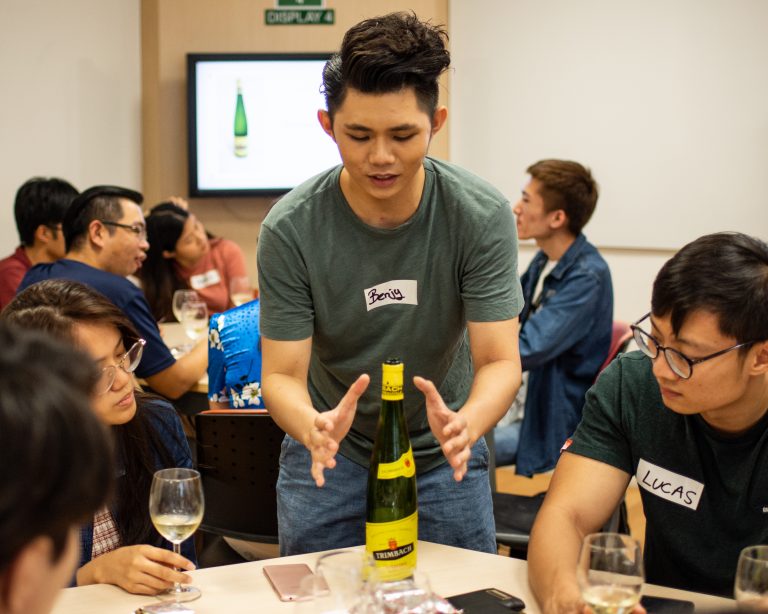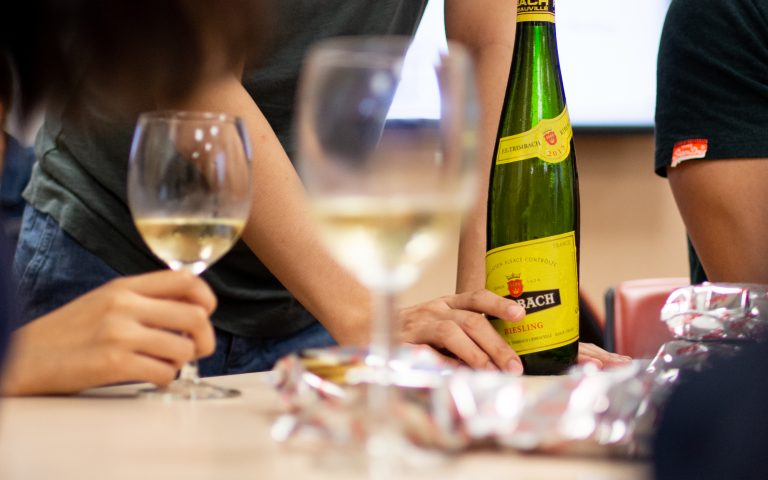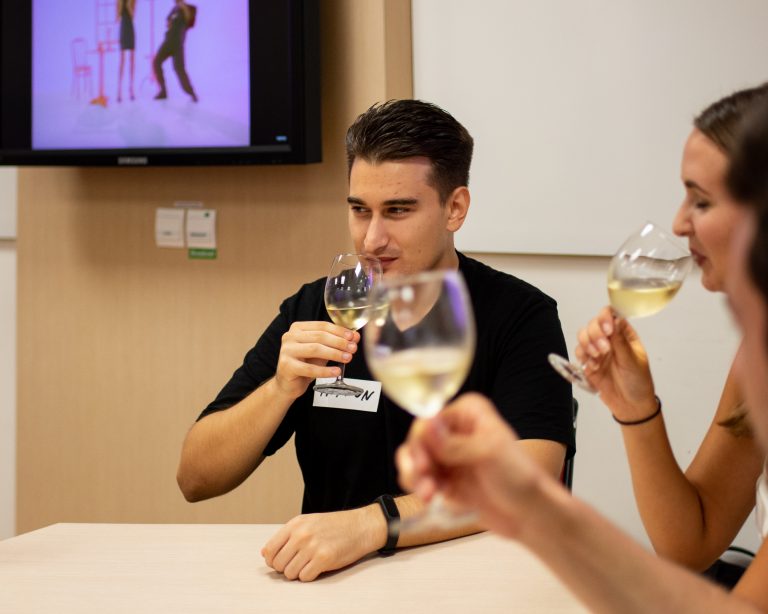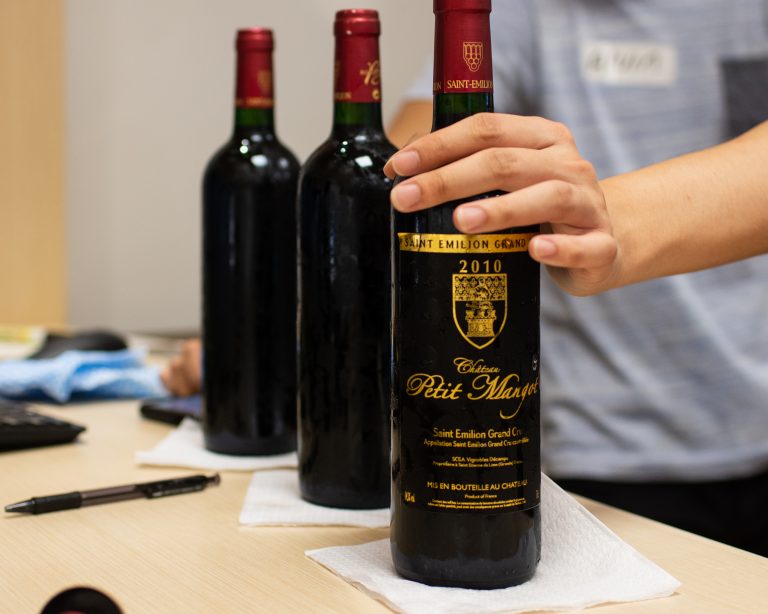Stop and smell the rosé
03 Sep 2018
By Theodore Lim

Along a dimly-lit corridor, a nondescript sign beside a North Spine tutorial room reads “NTU Wine Society: A Club of Taste.” The simple exterior belied the lavish atmosphere in the room, where the club was hosting its first event of the semester.
The grapey aroma of merlot and rosé filled the air as wine glasses clinked above the lively chatter.
The welcome tea and tasting session marks the start of the club’s sixteenth year since its launch. Founded in 2002, it aims to make wine tasting, commonly perceived as an exclusive activity, more accessible to the university community.
As the club’s members and guests sipped their drinks, they discussed topics ranging from schoolwork to the quality of wine in their hands. Senior members flitted from table to table to ensure that everyone was included in the conversation. The sparse tutorial room had transformed into a comfortable, cosy space.
The club has seen a threefold increase in registrations for its wine tasting sessions this year, as compared to last year. Tastings in the past year, which have focused on more specific beverages such as Korean wine and sparkling wine, have also been fully booked.
 A bottle of the Trimbach Riesling offered at the tasting, which Chan mentioned was a “good representative” of the particular variety of wine.
A bottle of the Trimbach Riesling offered at the tasting, which Chan mentioned was a “good representative” of the particular variety of wine.
“The society has really grown popular thanks to the work and dedication of my [Executive Committee]”, according to its president, Benjamin Chan, a final-year student at the School of Physical and Mathematical Sciences.
“Over the past one to two years, our social media presence has grown stronger, and our members have constantly extended invitations to our friends. This has really helped with the turnout,” said Chan.
But it has not always been this way. In the past few years, Chan said the society struggled to secure good deals with wine suppliers. Due to high costs and limited funding, it faced challenges in obtaining enough bottles and a diverse selection of wines for its tasting sessions. Chan’s executive committee successfully found new suppliers, resulting in a more diverse spread of wines at the society’s tasting sessions. For example, recent tasting sessions have included Port, a stronger and more expensive dessert wine, and an assortment of Japanese Sake.
Retaining members and keeping the passion aflame
 An international student takes a sip from his glass of Riesling wine, one of the higher quality wines offered at the tasting.
An international student takes a sip from his glass of Riesling wine, one of the higher quality wines offered at the tasting.
 Bottles of Sain Emilion Grand Cru, a variety of red wine, laid out in preparation for serving to the guests.
Bottles of Sain Emilion Grand Cru, a variety of red wine, laid out in preparation for serving to the guests.
The society’s members pay an annual membership fee of $10, and are entitled to discounts of up to 40 per cent on wine tasting events held throughout the year. The entrance fee for a typical wine tasting event is about $32 for members of the public. Meanwhile, the society’s members fork out only $20. In a bid to retain its members, the society introduced a “lifetime membership” last month, which allows former members to continue enjoying membership benefits without having to pay the fee again.
It tries to keep prices low in order to continue attracting people to its events, said Chan, who joined the society two years ago. This strategy has worked based on the attendance they have had at wine tasting events.
The society has also introduced a wine appreciation course, known as the Wine Series. It is conducted by research fellow Dr James Moore of the Asian School of the Environment, who is a member of the society.
In the course, participants learn how to describe the wines they are tasting. They are taught to recognise the variety of grape used in the production of the wine, as well as the region where it is from.
Chan hopes that the society has and will continue to make wine more accessible to the NTU community.
“Wine is a journey. Over the years, you are going to taste a little more and see a little more. I hope that we will help people know more about wine and encourage them to embark on wine journeys of their own.”





